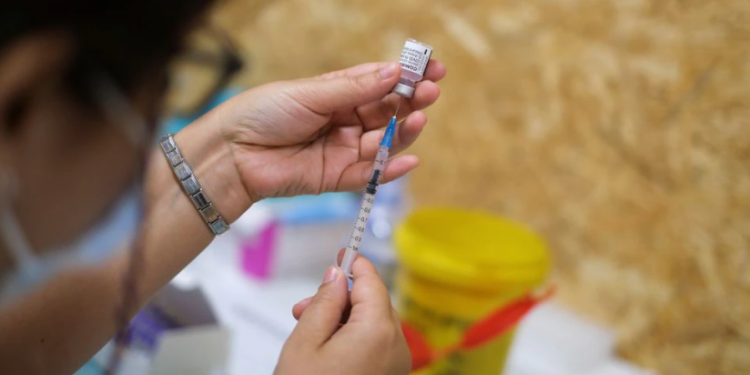In an unfortunate decision, the UK government has decided to treat Indians entering that country, after being vaccinated with Covishield, as unvaccinated. There comes another much welcome news from Lisboa (Lisbon) that Portugal is the first country in the world where vaccination campaign is almost over now. Reports suggest the entire nation of Portugal has reposed its faith in science with no adults left to be given shots. At mass immunisation centres only the last trickle of teenagers is seen. Making a record, the country has achieved the feat of fully vaccinating 85 per cent of its population.
The experience of Portugal offers valuable lessons for the world at a time when the fight against the COVID-19 pandemic appears to be hardly holding out any hope of abatement any time soon, not to speak of vanquishing the virus. The most important of them all is how a nation can bring the virus fully under control when vaccination rates are as high as they can go. Every indicator suggests the pandemic in Portugal is losing its severity. A lot of the credit for the success goes not to any politician, but to a naval officer, Rear Admiral Henrique Gouveia e Melo who has declared with much satisfaction: “We’ve won a battle, but don’t know if we’ve won the war against the virus. For, this is a world war.” He has become a household name in Portugal since taking charge of the vaccine rollout in February, regularly appearing on television to answer public concerns about the vaccination programme.
After the record vaccination coverage in Portugal the death rate is half the European Union average and nine times below that of the United States. Restrictions are still continuing for bars, restaurants, cultural venues and at family events such as weddings and baptisms while a COVID health pass is required to access certain venues, large events, group classes in gyms and restaurants at the weekend and during public holidays. The jabs have brought in a situation where the COVID-19 infection rate and hospitalisations due to the virus have dropped to their lowest for the past few months. According to the latest reports, Portugal recorded on 29 September 891 new infections. About 400 people were hospitalised that day for COVID-19 across the country, compared to 527 a week ago. Traffic is reportedly back to normal as the pre-pandemic rhythm of life is picking up with people commuting to work.
Just as Portugal has become the world’s laboratory for tackling the menace, many questions are yet to be answered by scientists even after one and a half years into the pandemic. True, the virus spreads slower in countries with higher vaccinations than it would in places with lower vaccination rates. But, 12-and-under children are not yet eligible for shots. What is worrying still is that herd immunity remains on pen and paper only. India is a great example of the elusiveness of herd immunity. There is no let-up in the daily calculations about the risks. Portugal’s health minister Marta Temido is not only modest in claiming success (something Indian politicians and ministers should learn), but is thoroughly practical and rationalist when she says: “We have achieved a good result, but it’s not the solution or miracle one would think.” For this reason, some precautions will remain. Mask-wearing will still be mandatory at many public indoor locations in Portugal. Digital health certificates will continue to be necessary for travel and events with crowds.
The most worrying aspect of this battle is the vulnerability of the elderly to the virus even though the vaccination of this segment of the population in Portugal has reached the impossible statistical height of 100 per cent. Many of them were vaccinated more than half a year ago. And the worry stems from that time frame as studies from around the world, from the United States to Israel, have warned of a drop in protection by that point. The question of whether these elderly people are experiencing a drop in the anti-bodies in their system or if they need booster doses still has no answer.
India’s COVID vaccination drive has entered a crucial stage. Nearly 100 crore vaccinations, i.e. one crore shots a day on an average, are to be administered in the next three months if the government’s ambitious target of inoculating every adult Indian by the end of this year is to be achieved. The country has been averaging 76 lakh doses daily for about a month now, which is some improvement from the July average of 45 lakh doses. The big question is wherefrom the country will get the required supply of vaccines. About 30 per cent of the adult population has not yet got a single shot. The 12-week gap between two doses of Covishield makes things look rather bleak as it is unlikely that the target would be met before early 2022.
The need of the hour could be for the government not to indulge in making bravado based on some manipulated statistics giving a false picture about the reality. According to government figures, about 25 per cent of the eligible population has now received both shots of the vaccine and nearly 69 per cent has been administered one shot. But, that is not enough considering the fact that the third wave following the coming festive season is not being ruled out by epidemiologists. Sincerity and rising above mean politicisation of the pandemic response, which characterise the Portugal experience, should guide India’s fight against the scourge.






































